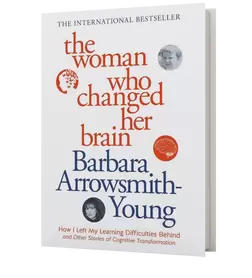ADHD
|
1. Prefrontal Cortex Issues
|
Symbolic Thinking (Thinking through language) |
Non-Verbal Thinking (Thinking through non-verbal processes) |
|
The prefrontal cortex is basically the CEO of our left (language based) and right (non-verbal) hemispheres and controls our whole system of attention. It regulates our thoughts, emotions and behaviours and it rules our ability to keep attention.
The Symbolic Thinking and Non-Verbal Thinking cognitive functions expect to be constantly active. They "light up" when we are presented with a task and generate ideas towards working out a solution. These functions are therefore essential at every moment of our conscious being and if they aren't doing their jobs, an ADHD or ADD diagnosis is often the result. |
When one or both of these cognitive functions are weak the individual may experience difficulties in:
|
The degree of weakness in one or both of these functions could affect whether an ADD or ADHD diagnosis is made. Even at mild difficulty, the impact can be profound.
Unfortunately, individuals with difficulties in these functions are often mislabelled. Someone with a mild Symbolic or Non-Verbal Thinking deficit can be seen as rude, misbehaving, disrespectful, unmotivated, lazy. These accusations can hurt and for some, such labels become self-fulfilling prophecies. |
2. Cognitive Load
Weaknesses in the prefrontal cortex are not the only underlying causes of ADHD, ADD and attentional disorders. Arrowsmith defines a “cognitive load" as when someone is intellectually overwhelmed through multiple cognitive weaknesses.
|
Memory |
Non-Verbal Communication |
Reading and Writing |
|
Problem Solving |
Processing |
Understanding |
What can appear to be ADD or ADHD, might simply be a number of cognitive functions underperforming. Consider a typical classroom or lecture where students are expected to:
|
That’s a minimum of six different cognitive functions that need to be working effectively for a successful classroom experience. Imagine the extra load on the brain even if just two are underperforming.
Having to work extra hard, the brain becomes exhausted and our attention wanders. In addition to brain fatigue our emotions can play a part as well. Imagine the feeling of fear or shame that comes with inability to perform. Not paying attention might be the safest option. |
ADHD Doesn't Need to be for LifeWhether caused by prefrontal cortex weakness or a cognitive load, attention difficulties impacting learning can be addressed.
A targeted cognitive program can exercise the areas of weakness, strengthening them, improving one’s attentional issues. In fact, many individuals who have been prescribed medication to regulate their attention before Arrowsmith have been able to come off medication after strengthening their cognitive functions. Their ability to regulate their attention has improved after they have strengthened their brain. If you or someone you know would benefit from improved attention and focus, contact Empowering Lives to discuss possibilities. |
Discover Your Unique Cognitive Profile
|
Arrowsmith Cognitive Questionnaire
Vertical Divider
Take our 30-minute cognitive profile questionnaire to start the journey into understanding your brain's strengths and weaknesses through a cognitive lens.
|
Arrowsmith Cognitive Assessment
The Arrowsmith Cognitive Assessment, administered by an Arrowsmith trained professional, will provide you with an in-depth insight into your unique cognitive profile.
|
Testimonials
Take the next Step
|
Is Arrowsmith right for me
Vertical Divider
Talk to
Admissions |
What we offer
Vertical Divider
Our
Approach |
How to Enrol
Steps to
Enrolment |







